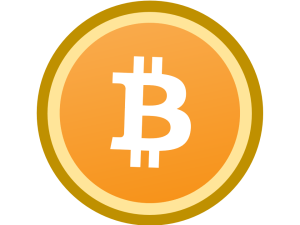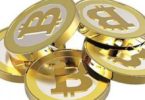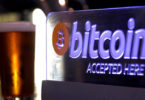In a time where the world is constantly pushing towards making transactions electronic, people have desired that such transactions are not only easier, they should be more secure.
The fact is electronic transactions are becoming the normal way of doing business, especially if you are into international transactions. If privacy and security have been your concern in doing this then you should know about Bitcoin.
About Bitcoin
Bitcoin is a form of digital currency, created and held electronically. Bitcoin can be used to buy things electronically. In that sense, it’s like conventional dollars, euros, or naira, which are also traded digitally.
However, perhaps its most important feature, and the thing that makes it different from conventional money, is that it is decentralised. No single institution controls the bitcoin network. This puts some people at ease, because it means that a large bank can’t control their money.
Historically, a software developer called Satoshi Nakamoto proposed bitcoin, which was an electronic payment system based on mathematical proof. It’s the first example of a growing category of money known as cryptocurrency. The idea was to produce a currency independent of any central authority, transferable electronically, more or less instantly, with very low transaction fees.
The U.S. Treasury classifies bitcoin as a convertible decentralised virtual currency. Magistrate Judge Amos L. Mazzant of a Texas District Court classified bitcoin as a currency. A June 2014, U.S. government auction of almost 30,000 bitcoins, which the U.S. Marshals Service seized in October 2013 from Silk Road, was said to increase legitimacy of the currency.
‘Better than gold’
Speaking on the nature of Bitcoin, serial entrepreneur, Wences Casares, who created Argentina’s first internet provider, speaking in a media interview, said,
“Anthropologists say that they can predict what’s going to emerge as money in any tribe because it always has six characteristics. Most of all, it has to be scarce. If it’s not scarce, you cannot trust it. People will create a fake. It also has to be divisible, transportable, durable, recognisable and fungible.
“Those are the six things that make money, money. So gold emerged as the universal ledger and it was the best form of money we’ve seen for 5,000 years. Nothing has kept value the way gold has. Not the British pound, not the US dollar, not land, nothing. Not even close. Simply because of its scarcity. And some people believe — wrongly — that gold has some form of intrinsic value. And the truth is, the only value is that it’s scarce and it makes a good ledger. Bitcoin, like gold, doesn’t have intrinsic value. But in all, but one of those six qualities, it is much, much better than gold.”
Who uses Bitcoin in Nigeria and why?
Sunday Ejezie, CEO of Sunej Global Ventures Ltd, an e-currency exchange, described users of Bitcoin in Nigeria to include Forex traders, online investors, importers, exporters, and online betting sites. He also said people have used Bitcoin to pay school fees, send money to loved ones, and for online shopping.
Reports have it that more and more reputable large firms have started accepting bitcoin as a form of payment. These include Dell, Reddit, Expedia, PayPal, and most recently, Microsoft.
The e-currency expert, Mr Ejezie said, “Bitcoin is seen as the future of money. And it can actually become the money the whole world will use because there’s less and less reliance on physical cash for international trade.
“It is fast, payments can be done in an instant. It is also cheap; there are no exorbitant charges. You own the ‘money’ completely, no government regulates or interferes with its value.
“What’s more nobody can freeze your account.”
Mr Ejezie explained that privacy reigns supreme because bitcoin transactions do not involve anyone’s personal details. “It cannot be traced. The system cannot be manipulated. There are no third parties to any that will delay or interfere with the transaction, and it carries none of your personal details. It is secure. The technology behind it makes it hard to hack.”
He added that bitcoins can be traded because due to demand and supply they can change in value.
How to get bitcoins
You can buy bitcoins from either trusted online exchangers such as naira4dollar.com, or directly from other people selling them. You can pay for them in a variety of ways, ranging from hard cash to credit/debit cards or bank transfers.
According to Mr Ejezie, some bitcoin customers in the country prefer to walk into an e-currency exchanger office, where most of them pay cash. The customer will then be allocated a bitcoin address where the bitcoin value will be funded.
The customer could also choose to have a place to store bitcoins, these are called ‘wallets.’
The two main wallet options are: a software wallet stored on the hard drive of your computer, or an online, web-based service. Online wallets are available from two main sites coindesk.com or blockchain.com. Blockchain is quite popular online wallet. It does not exchange fiat currency for bitcoin, but does have mobile solutions available for Android, and more recently, iOS.
The Sunej CEO said the beauty of bitcoin is that unlike Liberty Reserve e-currency which was centralised, the former is not. Therefore, the crash of one wallet host does not mean the loss of bitcoins. They can be moved to another.
If there is a downside to bitcoins, it would be that it is still new. Many people are still unaware of Bitcoin. According to the Bitcoin Foundation, “Every day, more businesses accept bitcoins because they want the advantages of doing so, but the list remains small and still needs to grow in order to benefit from network effects.
Source : http://www.tribune.com.ng/digital-savvy/item/29496-e-payment-exploring-the-bitcoin-alternative
Click on the bitcoin logo below to buy, use or accept bitcoin. Unocoin is India’s most popular bitcoin wallet.
To read the bitcoin white paper, visit: https://bitcoin.org/bitcoin.pdf








